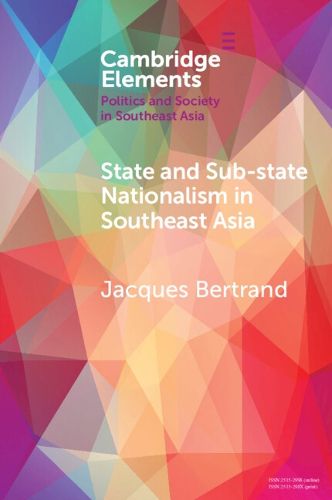Readings Newsletter
Become a Readings Member to make your shopping experience even easier.
Sign in or sign up for free!
You’re not far away from qualifying for FREE standard shipping within Australia
You’ve qualified for FREE standard shipping within Australia
The cart is loading…






Nationalism is a political phenomenon with deep roots in Southeast Asia. Yet, state attempts to create homogenous nations met with resistance. This Element focuses on understanding the rise and subsequent ebbing of sub-state nationalist mobilization in response to state nationalism. Two factors allowed sub-state nationalist movements to be formed and persist: first, state nationalisms that were insufficiently inclusive; second, the state's use of authoritarian tools to implement its nationalist agenda. But Southeast Asian states were able to reduce sub-state nationalist mobilization when they changed their policies to meet two conditions: i) some degree of explicit recognition of the distinctiveness of groups; ii) institutional flexibility toward regional/local territorial units to accommodate a high degree of group self-governance. The Element focuses on four states in the region - namely Indonesia, the Philippines, Thailand, and Myanmar.
$9.00 standard shipping within Australia
FREE standard shipping within Australia for orders over $100.00
Express & International shipping calculated at checkout
Nationalism is a political phenomenon with deep roots in Southeast Asia. Yet, state attempts to create homogenous nations met with resistance. This Element focuses on understanding the rise and subsequent ebbing of sub-state nationalist mobilization in response to state nationalism. Two factors allowed sub-state nationalist movements to be formed and persist: first, state nationalisms that were insufficiently inclusive; second, the state's use of authoritarian tools to implement its nationalist agenda. But Southeast Asian states were able to reduce sub-state nationalist mobilization when they changed their policies to meet two conditions: i) some degree of explicit recognition of the distinctiveness of groups; ii) institutional flexibility toward regional/local territorial units to accommodate a high degree of group self-governance. The Element focuses on four states in the region - namely Indonesia, the Philippines, Thailand, and Myanmar.